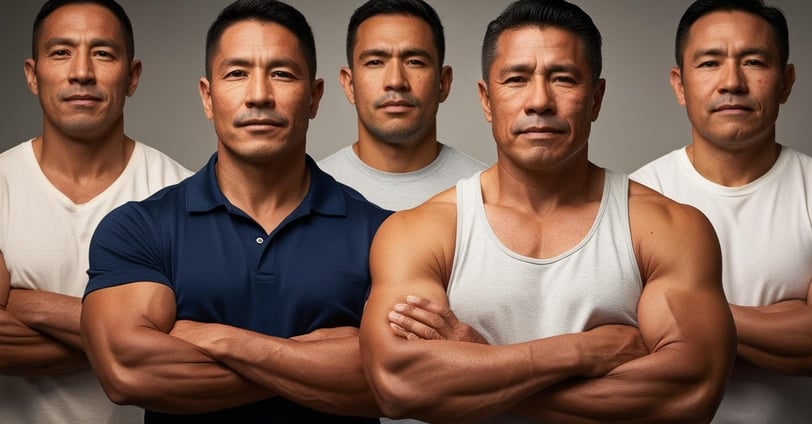Andropause: Understanding the Male Hormonal Transition
12/4/20243 min read


Andropause, often referred to as "male menopause," is a natural phase in a man’s life marked by a gradual decline in testosterone levels. Unlike menopause in women, which is characterized by a definitive end to reproductive capabilities, andropause progresses more subtly and varies significantly among individuals. Understanding andropause and its impact on physical, emotional, and mental health can help men navigate this stage with greater ease and confidence.
What Is Andropause?
Andropause is the result of a steady decrease in testosterone production, typically beginning around the age of 30 and becoming more noticeable after 40 or 50. Testosterone, the primary male sex hormone, is responsible for many functions, including muscle mass, bone density, libido, mood regulation, and overall energy levels.
While not all men experience andropause in the same way, the hormonal changes can have widespread effects on health and quality of life.
Symptoms of Andropause
The symptoms of andropause can manifest physically, emotionally, and mentally. Common signs include:
1. Reduced Energy Levels
Fatigue or a general lack of vitality is often one of the earliest signs of declining testosterone levels.
2. Loss of Muscle Mass and Increased Fat
As testosterone supports muscle growth and metabolism, its decline can lead to reduced muscle mass and strength, accompanied by an increase in body fat, particularly around the abdomen.
3. Decreased Libido and Sexual Performance
A lower sex drive and potential difficulties with erections are commonly associated with andropause.
4. Mood Changes
Men may experience irritability, depression, or heightened stress during this phase. These emotional shifts are often attributed to hormonal fluctuations.
5. Cognitive Changes
Difficulty concentrating, forgetfulness, or experiencing "brain fog" can occur as testosterone levels decline.
6. Bone Density Loss
Testosterone plays a role in maintaining strong bones, so its decrease can lead to an increased risk of osteoporosis.
7. Sleep Problems
Men experiencing andropause often report issues with insomnia or disrupted sleep patterns.
8. Reduced Hair Growth
Thinning hair or baldness may become more pronounced during this stage.
The Psychological Impact of Andropause
The changes associated with andropause can affect self-esteem and confidence. For many men, societal expectations of masculinity and strength can make it challenging to address these issues openly. It’s important to recognize that andropause is a natural process and not a sign of weakness.
Managing Andropause
While andropause is a natural part of aging, several strategies can help men manage its symptoms and maintain a high quality of life:
1. Healthy Diet
A balanced diet rich in fruits, vegetables, lean proteins, and whole grains can support hormonal health and overall well-being. Foods high in zinc, vitamin D, and healthy fats can help optimize testosterone levels naturally.
2. Regular Exercise
Strength training and cardiovascular exercises can combat muscle loss, improve mood, and boost energy levels.
3. Stress Management
Practices like meditation, deep breathing, and yoga can reduce stress, which may exacerbate andropause symptoms.
4. Adequate Sleep
Prioritizing sleep hygiene by maintaining a consistent bedtime, avoiding screens before bed, and creating a relaxing sleep environment can help manage fatigue and mood swings.
5. Hormone Replacement Therapy (HRT)
For some men, testosterone replacement therapy may be an option to alleviate severe symptoms. It’s crucial to consult with a healthcare provider to determine if this treatment is appropriate and safe.
6. Open Communication
Talking about symptoms with loved ones or joining support groups can provide emotional relief and practical advice.
When to Seek Professional Help
If the symptoms of andropause significantly interfere with daily life, it’s important to consult a doctor. A healthcare professional can perform tests to confirm low testosterone levels and recommend appropriate treatments or lifestyle changes.
Embracing the Transition
Andropause is a natural part of aging and an opportunity for men to focus on self-care and wellness. By staying proactive and informed, men can adapt to the changes and continue to lead fulfilling, vibrant lives. Recognizing the signs and seeking support when needed is key to navigating this phase with resilience and confidence.
